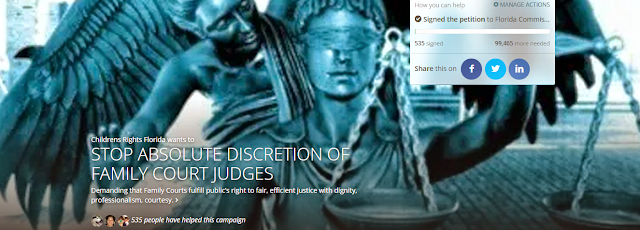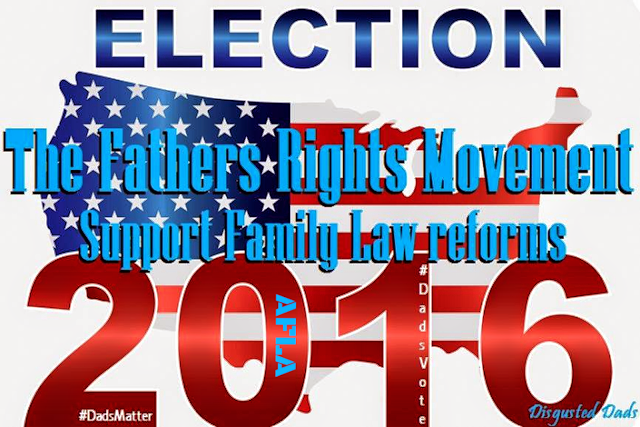Exposé is defined ~
 1. The act or an instance of bringing a scandal, crime, etc., to public notice
1. The act or an instance of bringing a scandal, crime, etc., to public notice
2. (Communication Arts / Journalism & Publishing) an article, book, or statement that discloses a scandal, crime, etc.
Rumpole at JUSTICE BUILDING BLOG -
It takes a lot to turn down a plea offer of probation when facing decades in prison. It takes courage and intestinal fortitude of another magnitude to turn down such a plea offer and go to trial in Broward County

IN THE BELLY OF THE BEAST
It takes a lot to turn down a plea offer of probation when facing decades in prison.
 It takes courage and intestinal fortitude of another magnitude to turn down such a plea offer ana go to trial in Broward County, where punishing a defendant for going to trial isn't just a natural result, it's considered a sport for the judges and prosecutors who work in Broward. They lurk in the shadows up there, like a Lion in the tall grass, just waiting to pounce on the unsuspecting lawyer/client foolish enough to go to trial.
It takes courage and intestinal fortitude of another magnitude to turn down such a plea offer ana go to trial in Broward County, where punishing a defendant for going to trial isn't just a natural result, it's considered a sport for the judges and prosecutors who work in Broward. They lurk in the shadows up there, like a Lion in the tall grass, just waiting to pounce on the unsuspecting lawyer/client foolish enough to go to trial.But credit and congratulations are due to David O Markus and Bill Barzee who defended a client on multiple charges of aggravated battery and on Thursday were rewarded with a Not Guilty on all counts. Two very sweet words. The Sun Sentinel Article is here.
While David and Bill are superb lawyers, neither of them are old enough to remember the good old days in Broward when your client was rewarded with an acquittal with (we are not making this up) a revocation of their bond, and being remanded to custody, ostensibly to check for open warrants. It happened to us, more than once. And the dialogue went something like this "The jury sir, having found you not guilty, I will adjudicate you not guilty. Congratulations. Your lawyer did a great job. The sheriff is directed to take the defendant into custody for processing. Have a nice day."
Eventually, Broward paid a few million dollars in a class action for incarcerating individuals who had just been acquitted (even when you read it, it's hard to believe they actually did it), which just caused a group of judges to revoke your client's bond the day before trial. And on and on it goes. Anyway, a hearty Well Done Mr. Markus and Mr. Barzee. Well Done Indeed!
Sean Taylor Murder Trial: Herald Ace David Ovalle has been tweeting all week the trial of Eric Rivera, the alleged shooter of Sean Taylor. There is no trial today and the rumor is the trial should wrap up next week. Here's a tweet from this week:
Lawyers getting snippy w/ each other over witness list. "Excuse me, Lee County," prosecutor Reid Rubin sniped. Defense hails from Ft. Myers.
First cold day of the year arrives today. Enjoy a beautiful fall weekend. See You In Court.
Thanks for all the great comments! Feel free to "anonymously" post the name and/or details of your experience with a Family Law Garbage Lawyer(s).
Many divorces involve more than figuring out which spouse gets what property and if and how much one spouse must pay the other in alimony. Often, divorcing parents have disagreements about who should have custody of their children, and like many other divorce issues, it’s usually up to the court to settle the dispute.
The gold standard of any custody decision is what custody arrangements best serve the interests of the child. A determination of what’s best for any particular child requires a case-by-case examination of both the needs of the child and the advantages presented by those seeking custody.
Custody Disputes
Obviously, most custody disputes involve a mother and father at the time of or after a divorce. Occasionally, a custody dispute arises when the parents have never been married. Sometimes, custody disputes involve third parties, usually relatives, seeking custody at the time of the death or incapacity of a parent.
The courts approach these situations in pretty much the same way. They start with a presumption that parents are in the best position to look out for the welfare of their own child. This presumption can be overcome by establishing that a parent isn’t fit or able to best care for the child.
Factors Courts Consider
In making custody decisions based on the best interests of a child, courts look to various factors, usually set out in the state law or case law.
Factors for Parents
The factors courts look at when it comes to the parents include:
- Which parent is the most suitable custodian based on character, temperament and stability?
- What’s the child’s relationship with each parent?
- What’s the educational level of each parent?
- What child-rearing skills does each possess?
- Does either parent have an illness that may harm the child?
- Which parent will provide the best home environment?
- Does the child have stronger emotional ties to one or the other parent?
- Does the child have special needs that can be better met by one parent over the other?
- With whom has the child been living on a regular basis?
- What type of extended family relationships exist?
- What’s the employment status of each parent?
- What’s the financial status of the parties?
- What’s each parent’s apparent motive for seeking custody?
- Is either parent unfit to have custody? (Drug or alcohol abuse, for example, usually makes a parent “unfit”)
- Which parent is the most likely to allow the child a meaningful relationship with the other parent and extended family?
- The ability and interest of each parent to provide for the emotional, social, moral, material and educational needs of the child
These factors are not exclusive. A court may also look at where each parent lives, the local school system or a parent’s other relationships. While being unfit to have custody is an automatic disqualifier, the remaining factors are not given the same weight in each case.
A parent seeking custody can’t just look at all the factors, put a check mark in each column where it weighs more in favor of one than the other and then total up the scores. Judges give different weight to each factor in each case.
Factors for the the Child
Some states have lists of factors that focus on the child, rather than the parents, when making a custody decision. Courts may look at some or all of these factors:
- The sex and age of the child
- The child’s emotional, social, moral, material and educational needs
- The respective home environments offered by the parties
- The interpersonal relationship between each child and each parent
- The interpersonal relationship between each child
- The effect on the child of disrupting or continuing an existing custodial arrangement
- The preference of each child, if the child is of sufficient age and maturity
- The report and recommendation of any expert witnesses or other independent investigator
- Available custody alternatives
- Any other relevant matter the evidence may disclose
Here also, judges give different weight to each factor on a case-by-case basis.
Non-Factors in the Decision
Factors that don’t affect the relationship between the child and the person seeking custody aren’t considered by the courts. For instance, a parent’s sexual orientation usually isn’t a factor considered in child custody disputes.
Next: The Court’s Decision
The Court’s Decision
While some states require a judge to address each legal factor in making a decision, others permit a judge to just state that all factors were in fact considered. In almost all cases, though, the judge will explain which factors weighed the heaviest and the basis for the decision as to who’ll have custody.
Certainly, you and your ex-spouse both love and want what’s best for your child. A bitter custody battle isn’t good for anyone. Avoid the stress and emotional turmoil by remembering that your goal is your child’s well-being. Try working out a fair custody and visitation agreement by taking an objecting look at the same factors the court looks at if your dispute goes to court. You may be surprised to find that there’s no need for a drawn out legal battle at all.
Questions for Your Attorney
- Should I wait to get remarried until after my custody dispute is over?
- Is it okay to accept a job in another state during a custody dispute?
- I just started seeing someone else. Is it okay to date in the middle of a custody dispute?
Pages:1 | 2
Family Law,Child Custody, custody arrangement, best interest
 |
| WHY IS THIS A CRITICAL ISSUE? |





























